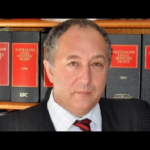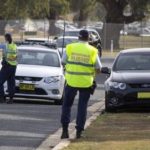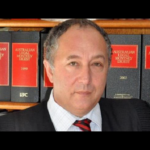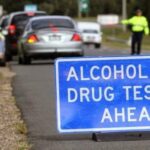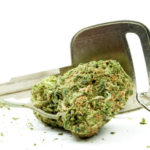Roadside Drug Testing Aims to Punish Illicit Users, Not Save Lives
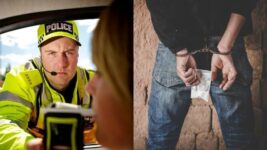
Back in 1970s Australia, drink driving was socially acceptable amongst a large portion of the population. And whilst on the books it was outlawed, unless a vehicle was discernibly swerving its way down a road, a drunk driver would likely make it home without getting booked.
However, road accidents and deaths attributed to drink driving were high. The introduction of random breath testing for alcohol across all jurisdictions over the 12 years ending in 1988 changed all this. RBT tests for levels of alcohol in the blood that, if exceeded, cause impaired driving.
As Australian academics Julia Quilter and Luke McNamara point out in a 2017 paper, the introduction of RBT turned “driving under the influence of alcohol from a common practice to a highly stigmatised criminal behaviour”. And the accompanying drop in road fatalities was dramatic.
But the introduction of roadside drug testing (RDT) adopted nationwide over the first decade of this century, hasn’t had the same impact. In fact, there’s no evidence to suggest that road fatalities or accidents in general have been reduced.
The main reason for this is that police aren’t actually testing drivers to see if they’re high. Rather, officers test saliva using equipment that can ascertain the slightest trace of a select range of illicit substances, and if testing positive, the driver is punished regardless of the level in their system.
Something doesn’t add up
Prior to the rollout of the RBT and RDT, the Traffic Act 1909 (NSW) carried a prohibition against driving under the influence (DUI) of alcohol or any other drug. This law continues to operate under the Road Transport Act 2013 (NSW) (RTA), which also holds the other drink and drug driving crimes.
The offence of DUI is set out in section 112 of the RTA. It continues to apply in cases where a driver appears to be inebriated but testing isn’t possible. Unlike other drug driving laws, DUI applies to all illicit substances listed in schedule 1 of the Drug Misuse and Trafficking Act 1985 (NSW).
While section 110 of the RTA contains the offence of driving with the presence of a prescribed concentration of alcohol in a driver’s system. This is the law triggered by RBT. It involves a rising scale of offences in terms of how drunk a driver is, with corresponding penalties growing harsher.
Then there’s section 111 of the RTA. It contains the offence of driving with the presence of certain drugs in a driver’s system. Although, unlike the similar alcohol offence, there’s no mention of concentration, which corresponds to the testing method, as it picks up on the tiniest of traces.
A first-time offender found to be driving with even a minute trace of one of the select range of illicit substances that apply to this regime loses their license for 3 months and cops a $572 fine, while repeat offenders are subject to steeper fines and longer licence suspension periods.
Further, this offence only relates to certain “prescribed illicit” drugs. Indeed, just four. These are MDMA, amphetamines, cocaine and THC: the psychoactive component of cannabis.
This means even if a driver is impaired by heroin, ketamine, GHB or any of the known-to-be-road-accident-causing legal benzodiazepines when tested, this won’t show up and they’ll simply be waved on.
Backdoor drug busts
“Drug driving laws should not be used as a de facto mechanism for punishing individuals who are suspected of having committed the crime of possession and/or self‐administration of an illicit drug,” assert Quilter and McNamara in their paper, which tracks the history of these laws nationwide.
However, this is exactly what NSW police, and other forces around the country, have been doing for some time. Drivers are being randomly stopped on the road and made to provide a sample of their saliva, and regardless of whether they’re high or not, they’re charged with drug driving.
The obvious conclusion to make as to why this is occurring would be that the technology to test for levels of illicit drugs in a driver’s system just doesn’t exist. But that’s not the case.
In February 2012, Norway implemented a system which involves testing drivers in relation to drug impairment. The Norwegian model involves testing for levels that are scientifically proven to impair drivers in relation to 20 different types of illicit and licit drugs, including benzodiazepines.
And the Netherlands adopted a similar such regime about five years ago.
The roadside war on drugs
The Iemma government introduced roadside drug testing in this state via 2006-passed laws. But, surely, amongst those drafting them in the then NSW Ministry of Transport, there must have been someone that understood they’d have no real bearing on road safety but rather punish drug use.
When the Baird government announced in 2015 that it was tripling roadside tests to 97,000 a year, someone in government must have had an inkling this agenda wasn’t really focused on safety. And when Berejiklian doubled tests to 200,000 in 2018, she must have been privy to how it all worked.
This suspected understanding may be the reason as to why when Baird was upping the ante, NSW police decided to centre its initial roadside drug testing blitz upon the state’s Northern Rivers region, which could also easily go by the name Cannabis Country.
In late 2015, Northern Rivers locals were already complaining about the impact these laws were having, as numerous individuals were getting done for cannabis driving in circumstances where they weren’t impaired, and the loss of a licence is highly determinantal in regional areas.
Lismore Local Court was swamped with these cases at the time. Then Magistrate David Heilpern stated in court that he’d been presiding over a plethora of drug driving cases, in which defendant after defendant swore that they’d tested positive whilst not being under the influence of cannabis.
Driving change
Heilpern’s ruling in the 2016 Police versus Joseph Carrall is renowned as the magistrate found the defendant not guilty of cannabis driving, as he hadn’t smoked the substance for a period of nine days before testing positive, and he’d left this gap before driving on the advice of a police officer.
“There was a mass increase in the number of these matters listed once they started doing the random drug testing,” Heilpern told Sydney Criminal Lawyers in mid-2020, not long after he’d retired from the bench.
“Of course, that was to the detriment of other cases. In other words, the list would turn from a list of 60 to 100 and the balance of matters didn’t get the attention that they previously did.”
These days, Heilpern is running Drive Change, which is pushing for law reform around these unjust drug driving laws. The campaign has a particular focus on seeing a medicinal cannabis driving defence against drug driving, as currently those using the drug legally can lose their licence due to it.
“There is no defence for having a prescription or using medicinally, so it means that a whole range of people are caught up in these silly drug driving laws,” Heilpern outlined last July.
“What happens is they’re permanently driving with discernible levels of THC in their system, even though they’re not driving under the influence, in terms of being affected.”
Going to court for a traffic offence?
If you are going to court for a traffic offence, call or email Sydney Criminal Lawyers anytime to arrange a free first consultation with an experienced, specialist traffic lawyer who will accurately advise you of your options, the best way forward, and fight for the optimal outcome in your specific situation.


